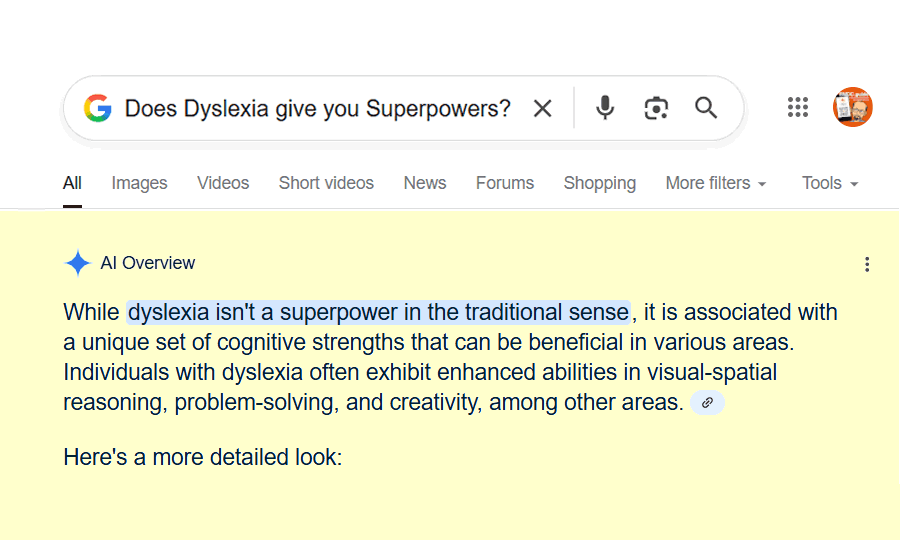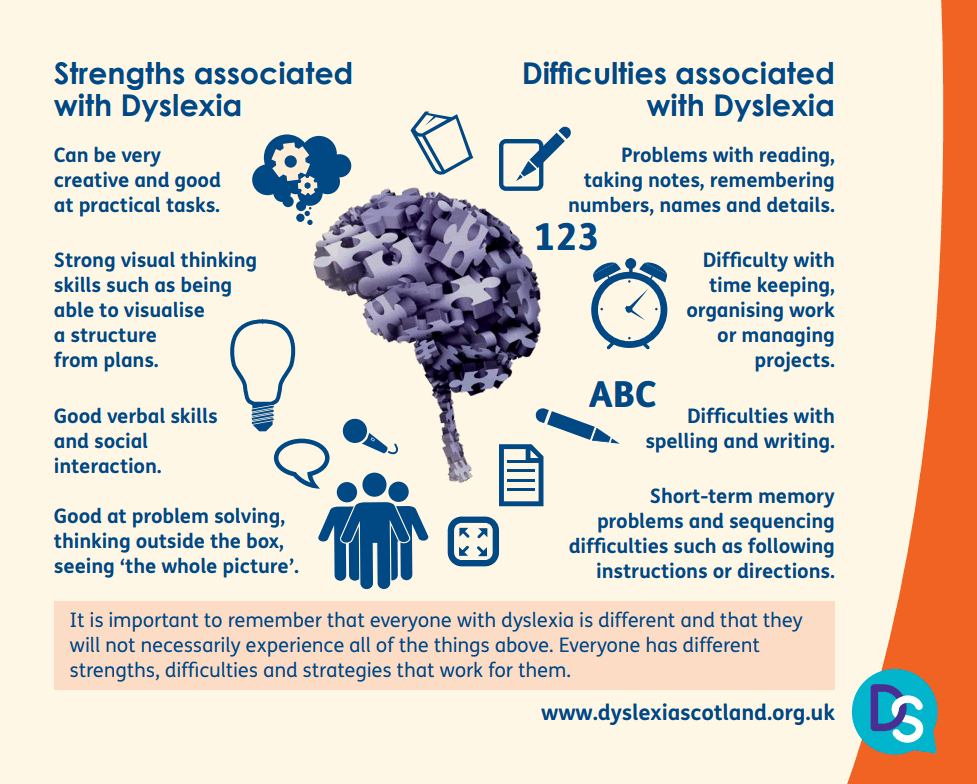I took longer than some children to read well, and several more years until I really wanted to read much. I’m not dyslexic and haven’t raised a dyslexic child, so I’ve not felt what it is like to be dyslexic in a society that expects people to be able to read fluently and write easily.
I do know what it can be like to not fit in, and I’ve been learning more about dyslexia while writing a paper on other aspects of neurodiversity in relation to translating or simply interacting with the Bible. I don’t pretend to know much but I’ve begun listening to those that do.
I once saw a TV show in which the hero had an assistant who helped him. There was a great line, “she’s not helping me to do my job, she’s helping me so that I can do my job”.
Some people have difficulty reading because they have not had the opportunity to learn early on, or an environment in which to become good readers. Many live in societies where there is a strong oral preference and even if people can read they prefer non-written communication. Some people have physical challenges. These can be complex or as simple as needing glasses. Some have neurological differences – the challenge is not in what they see but in how their brains process information.
Today dyslexia is increasingly recognised as a neurobiological difference alongside other forms of neurodiversity including autism and ADHD.
As early as the 1880’s scientists and educators began to notice that some people seemed to be at least as intelligent as others in most areas, but struggled to read. There were several ideas as to why this might be, and over the years a lot more has been learned about dyslexia. It seems to affect about 1 in every 10 people wherever they are from, but different countries measure it differently so reported numbers vary. Some countries now even have laws requiring schools, employers or providers of public services to make adjustments to help people for whom dyslexia is a barrier.
Dyslexia is often looked at only as a problem, but it does sometimes come with strengths both in terms of natural strengths or ‘ordinary skills’ strengthened through practice to overcome difficulties. As the AI response to my question about whether it gives you superpowers states, “While dyslexia isn’t a superpower in the traditional sense, it is associated with a unique set of cognitive strengths that can be beneficial in various areas. Individuals with dyslexia often exhibit enhanced abilities in visual-spatial reasoning, problem-solving, and creativity, among other areas.”
Graphic from https://dyslexiascotland.org.uk/leaflets/
“Can be creative and good at practical tasks”, doesn’t necessarily mean that you, or any dyslexic person you meet has to be brilliant. It is a possibility rather than another thing to feel bad about if you aren’t brilliant. The graphic from Dyslexia Scotland is clear “Everyone has different strengths, difficulties and strategies that work for them.”
There are lots of famous people who have been diagnosed or suspected of being dyslexic. Various lists includes Albert Einstein, George Washington, Steven Spielberg, John Lennon. All these are given as examples of people who have succeeded despite or because of their dyslexia.
There are plenty of stories in the Bible that make it clear that God often doesn’t call us to do things because of our strengths, but because of our willingness. (and plenty of Bible heroes don’t seem that willing to begin with).
You don’t have to have superpowers to be important to God, or to other people.
You don’t have to make up for not being good at reading or writing by being super good at other things. (even if you are good at other things)
Your value as a human being isn’t in what you can or can’t do.
Your value is because you are human, made in the image of God. God, the creator and sustainer of the whole universe sees exactly who you are and loves you. He want’s you to use of the gifts and skills he has given you. He wants you to live your life for him but he’s not looking for 100% perfect, or for you to be at your very best, every minute of the day. He was the one who came up with the idea of rest and play as well as work.
All these ideas, and more, are to be found in the Bible. Traditionally that’s a book, which can put people off if they have trouble reading. Reading can be a challenge, but you don’t need superpowers to overcome it. You may need determination, different strategies, and—like everyone else on the planet—you may sometimes need a little help.
Originally published by Peter Brassington…
https://brassingtons.wordpress.com/2025/07/31/before-i-talk-about-bibles-for-dyslexics/


